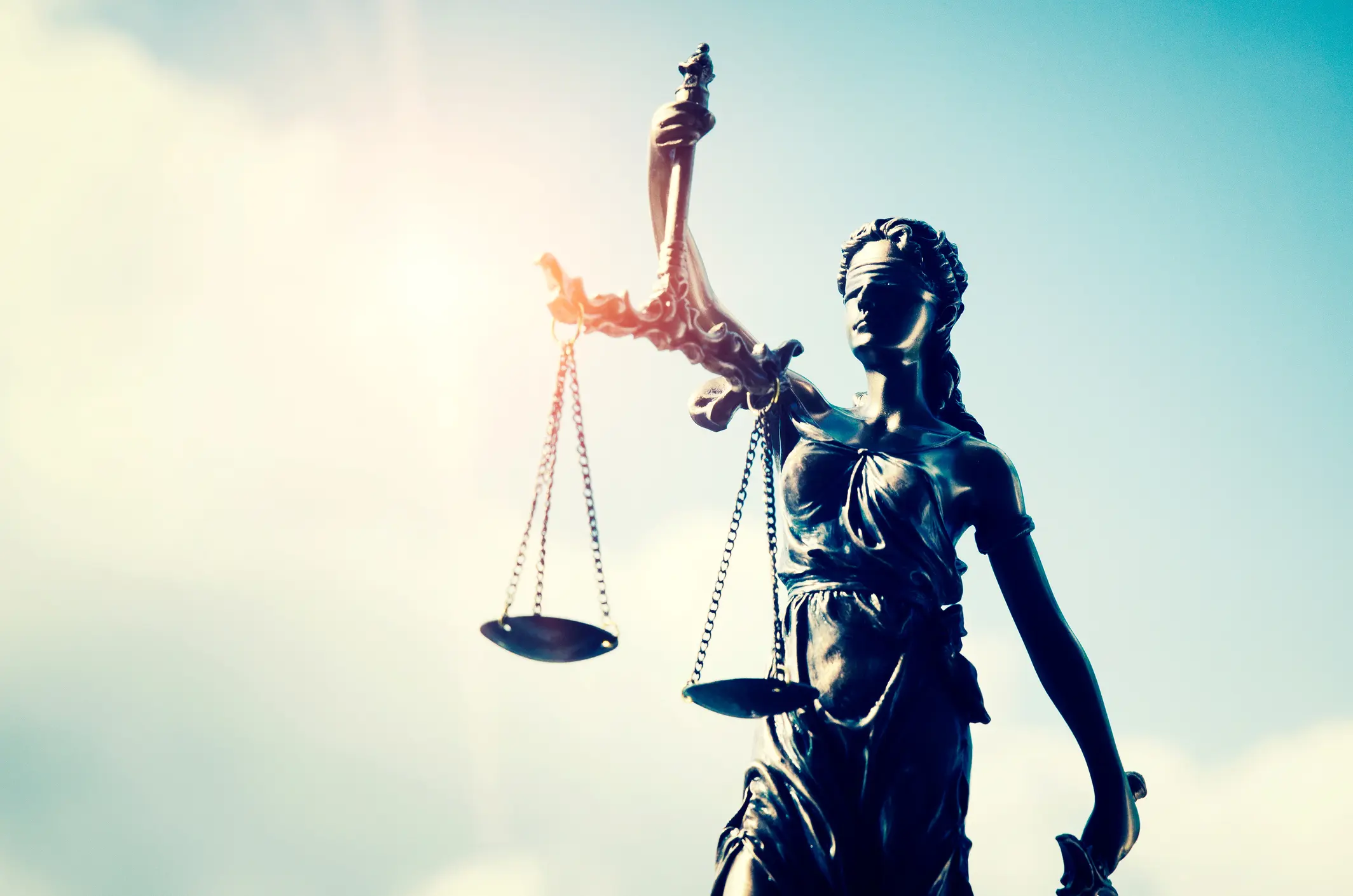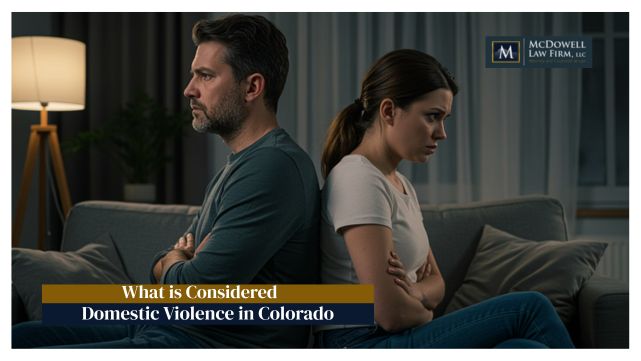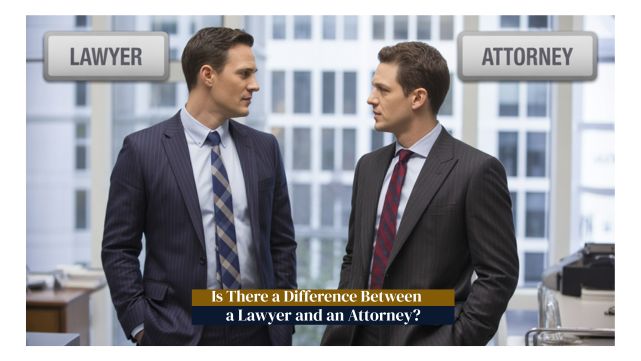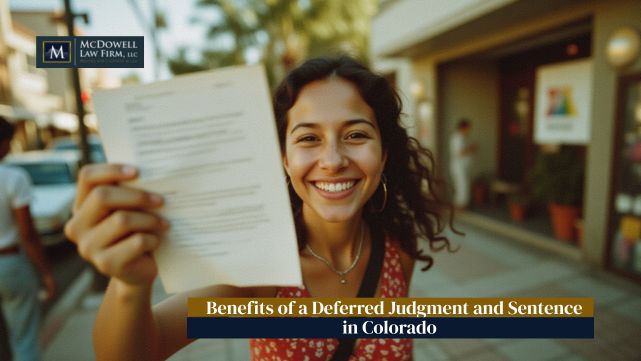At the McDowell Law Firm, we handle both civil and criminal legal matters in Colorado. In this post I will provide guidance on the difference between civil and criminal matters. Both types of law serve to regulate behavior and maintain order, but they do so in fundamentally different ways. Civil and criminal matters involve different types of cases, penalties, procedures, and legal representation. This post will provide some of the basics to help differentiate whether a case is civil or criminal in nature.
Difference between Civil and Criminal Law
| Category | Civil Law | Criminal Law |
| Definition | Deals with disputes between individuals or entities. | Involves offenses against the state. |
| Objective | To resolve private conflicts and provide remedies to those wronged or injured. | To punish wrongdoers and deter illegal conduct. |
| Plaintiff | Individual or entity (the person who files the lawsuit). | The government (e.g., “People of the State of Colorado”). |
| Defendant | The individual or entity being sued. | The accused individual. |
| Legal Standard | Preponderance of the Evidence – more likely than not the defendant is responsible. | Beyond a Reasonable Doubt – highest legal burden of proof. |
| Examples | – Contract Disputes: Breach of contract.- Property Disputes: Ownership or boundary issues.- Torts: Personal injury, defamation, negligence. | – Theft: Larceny, shoplifting, robbery, etc.- Assault & Battery: Including domestic violence, child abuse.- Drug Offenses: Possession, distribution, or manufacturing. |
| Prosecution | Initiated by the plaintiff. | Initiated by a government prosecutor (District Attorney or City Attorney). |
| Outcome | Compensation or specific performance (remedies). | Penalties such as fines, imprisonment, probation, etc. |
Civil Law
Civil law deals with disputes between individuals or entities where compensation and/or relief is sought by the plaintiff or victim. The objective is to resolve private conflicts and provide remedies to those who have been wronged or injured. Examples of civil cases include:
- Contract Disputes: When one party breaches a contract, the other party can sue for damages or specific performance.
- Property Disputes: Issues regarding property ownership or boundary disputes often lead to civil litigation.
- Torts: Personal injury claims, defamation, and negligence fall under tort law, where the injured party seeks compensation.
In civil cases, the burden of proof lies on the plaintiff, who must demonstrate that the defendant is liable by a “preponderance of the evidence,” meaning it is more likely than not that the defendant is responsible.
At the McDowell Law Firm, our civil litigation is focused on personal injury matters in Colorado. We handle car accident cases with serious injuries, motorcycle accidents, dog bites and premises liability cases.
Criminal Law
Criminal law, on the other hand, involves offenses against the state. You will notice in criminal cases, the “People of the State of Colorado” are the Plaintiff, while an individual is the Defendant. These cases are prosecuted by the government, and penalties are designed to punish the wrongdoer and deter others from similar illegal conduct. The prosecutor is typically a District Attorney or a City Attorney who represents the “people”. Examples of criminal cases include:
- Theft: Taking someone else’s property with the intent to permanently deprive them of it. Similar property crime offenses include larceny, shoplifting, robbery, motor vehicle theft and burglary.
- Assault and Battery: Physical attacks causing injury. Second degree assault, harassment, menacing, domestic violence, child abuse charges are also criminal offenses.
- Drug Offenses: Possession, distribution, or manufacturing of controlled substances.
In criminal cases, the burden of proof is much higher. The prosecution must prove the defendant’s guilt “beyond a reasonable doubt,” ensuring a higher standard to avoid wrongful convictions. This is the highest legal burden of proof.
Types of Penalties
The penalties in civil and criminal law vary significantly:
Civil Penalties: Typically, the defendant is required to pay monetary damages to the plaintiff. In some cases, they may also be ordered to perform or refrain from specific actions (injunctive relief). There is no incarceration in civil cases.
Criminal Penalties: Penalties can include fines, community service, probation, and jail or prison time. Some types of crimes have mandatory treatment such as domestic violence and DUI cases.
Civil vs Criminal Law: Procedural Differences
| Stage | Civil Law | Criminal Law |
|---|---|---|
| Filing of the Case | Initiated by a private party (plaintiff) filing a civil complaint against another party (defendant). | Initiated by the government (prosecutor) filing criminal charges against an individual or entity (defendant). |
| Pre-trial Procedures | Involves discovery, where both parties exchange evidence and information. May include: – Filing motions – Meet and confer sessions – Mediation (Varies by state’s rules of civil procedure) | Governed by criminal procedure rules. May include: – Discovery by the prosecution (e.g., police reports, 911 calls, bodycam footage) – Pre-trial conferences – Motions to suppress or motions in limine – Preliminary hearing for serious felonies to determine probable cause. |
| Trial | – Plaintiff presents first, followed by the defendant. – Can be judge or jury decided, depending on case and jurisdiction. – Burden of proof: Preponderance of the evidence (more likely than not). | – Prosecution presents first, followed by the defense. – Usually decided by a jury of 6 or 12 citizens; defendants can opt for a bench trial (judge only). – Burden of proof: Beyond a reasonable doubt (highest standard). |
| Verdict & Appeal | – If plaintiff wins, the defendant must pay damages or perform specific actions. – Either party can appeal to a higher court. | – If found guilty, defendant is sentenced. – If found not guilty (acquitted), may be eligible for record sealing. – Defendants can appeal conviction or sentence. – Prosecution may appeal certain rulings, but not a not-guilty verdict due to double jeopardy protections. |
Difference in Filing of the Case between Civil and Criminal Laws
- Civil: Initiated by a private party (plaintiff) filing a civil complaint against another party (defendant).
- Criminal: Initiated by the government (prosecutor) filing criminal charges against an individual or entity (defendant).
Difference in Pre-trial Procedures in Civil and Criminal Laws
- Civil: Involves discovery processes, where both parties exchange information and evidence. Depending on the State’s rules of civil procedure this can include filing motions, meeting and conferring, and mediation.
- Criminal: The rules of criminal procedure lay out the pre-trial process in a criminal matter. Depending on the jurisdiction and level of charges, the exact procedure will vary. The prosecutor is required to share “discovery” with the defendant which may include police reports, photos, 911 calls, bodycam footage and more. Typically, the pre-trial process includes negotiations with the prosecutor at pre-trial conferences. This can also motions to suppress evidence or other motions in limine. In some serious felony charges a Defendant may have the right to a preliminary hearing to determine if there is enough evidence to proceed to trial.
Difference in Trial Between Civil and Criminal Laws
- Civil: The plaintiff presents evidence first, followed by the defendant. Civil cases may be decided by a judge or by a jury. It depends on the type of case and the jurisdiction. The burden in civil cases is typically a “preponderance of the evidence” standard.
- Criminal: The prosecution presents its case first, followed by the defense. Criminal trials often are decided by a jury of 6 or 12 citizens. In some instances, defendants may opt for a “Court trial” where the Judge is the one determining whether enough evidence has been presented to establish guilt beyond a reasonable doubt.
Difference in Verdict and Appealing in Civil and Criminal Laws
- Civil: If the plaintiff wins, the court orders the defendant to pay damages or perform specific actions. Either party can appeal the decision to a higher court.
- Criminal: If the defendant is found guilty, they will then be sentenced. If they are found not guilty, also called acquitted, they may be eligible to seal their record. Defendants have the right to appeal the conviction or sentence. The prosecution can also appeal certain rulings of the Court, but if the defendant has been found “not guilty,” jeopardy will attach, and the defendant may not be re-tried.
Hiring the Best Civil or Criminal Defense Attorney
Choosing the right attorney is important for navigating either legal system effectively.
Civil Attorneys: Specialize in specific areas such as personal injury, family law, or contract disputes. They represent clients seeking compensation or specific legal remedies. You should find an attorney who specializes in your type of case. Look for someone who has handled thousands of cases over many years.
Criminal Attorneys: Defend individuals charged with crimes. They work to ensure their clients receive a fair trial and seek to reduce or dismiss charges through plea negotiations. Criminal attorneys include public defenders (provided by the state for those who cannot afford private counsel) and private defense attorneys.
When hiring your attorney, consider their specialization, experience, and track record in handling cases similar to yours. The right representation can greatly impact the outcome of your case. I always think you should hire someone local to the area where the case is set. Don’t be afraid to ask the hard questions. It doesn’t all boil to down to costs and fees, although that should definitely be a consideration. You need to find a lawyer you feel comfortable with. We offer free consults for you to meet Josh McDowell to see if we are a good fit for your case.
Conclusion
Understanding the distinctions between civil law and criminal law is important for anyone involved in legal proceedings. For you to know how to proceed in a manner that gives you the best chance of success you need to know what you’re up against. A quick summary is that civil law focuses on resolving disputes and providing compensation, while criminal law aims to punish and deter wrongful conduct. The differences in cases, penalties, procedures, and the type of attorney needed are very different in civil and criminal matters. Once you understand the basics, you can better handle the legal challenges and seek the best legal assistance.
If you are facing criminal charges in Colorado, or you are seeking an injury attorney to help you through your car accident case, call the McDowell law firm for a no obligation consultation. If we can’t help in your type of case, there’s a good chance we know an attorney who can.





